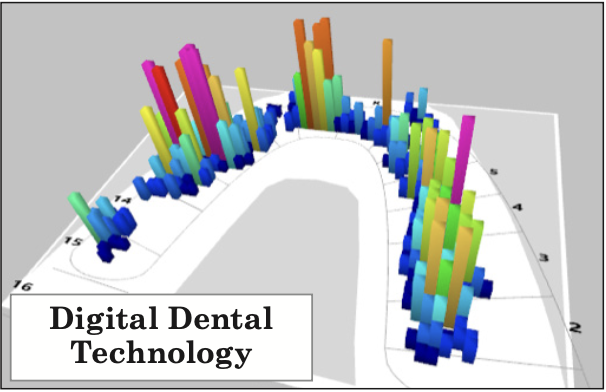When I hear this from patients, it truly saddens me. Gum recession is NOT caused by brushing your teeth too hard. It is because of an unbalanced and/or misaligned bite. It is caused by uneven pressures on teeth, leading to stress on the surrounding gums and bone. I know that a lot of you may have been told that you are brushing too hard, and this may be frustrating to read, but unfortunately most dentists are only trained to diagnose “tooth disease” and “gum disease”. With advanced training and technology, we are educated to diagnose and treat “bite disease”.
What happens if you don’t correct a bad bite? There are a few different things that can happen if you maintain a bad bite for your entire life. Number one is tooth wear. If your bite doesn’t come together properly, what ends up happening is your teeth can wear and sometimes in an asymmetric or an accelerated fashion. This type of wear can cause many problems, including aesthetic issues, and other functional issues as well as fractures or tooth loss. If you are a clencher or grinder, this can further escalate this problem.

Misaligned teeth can also cause gum recession, leading to sensitivity and bone loss. This is a mechanical problem with forces on the tooth that cause torque and improper pressures which makes the gum tissue pull away from the tooth. This can happen with just one or two teeth in the mouth, which is why “toothbrush abrasion” is not plausible. (We aren’t just brushing hard on one tooth.)
So how do we know if you have “bite disease”? The diagnosis of malocclusion is not always obvious because many people have the appearance of a “good” or “healthy” bite and have no major symptoms. Using technology, we can digitally measure a person’s bite showing actual pressures on each tooth in real time. This data also shows us exact percentages of forces on every tooth in the mouth, so if there are imbalances, we can easily identify them. People’s bites change many times throughout life especially with dental work, so identifying any imbalances and monitoring these changes is very important to the stability and health of the mouth.
An unbalanced bite can lead to many issues in the mouth including gum recession, tooth wear, tooth fractures, and tooth loss. With advances in digital technology, we can identify these imbalances with precise adjustments or even rebuild a person’s bite to where it once was. If you are noticing changes in your gums, tooth wear, or if your bite just feels off, having an evaluation with a dentist who is an expert in bite disease could give you the level of health and stability you deserve.
Dentally Speaking by Jeffrey S Haddad D.D.S. Originally published in Community Lifestyles.


